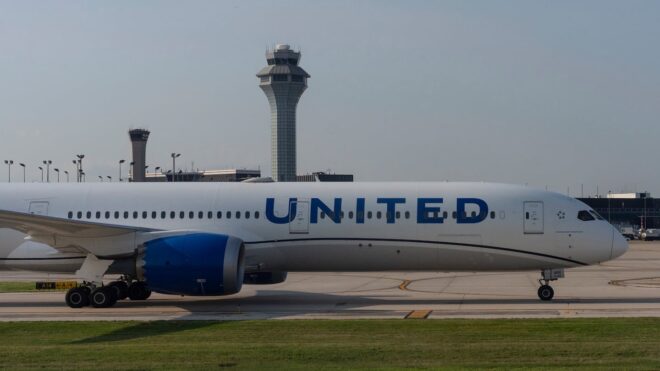
In recent developments, United Airlines’ proof-of-illness requirement has drawn significant attention and scrutiny from the U.S. Department of Labor. This policy, which demands employees provide documentation verifying their illness to qualify for sick leave, has raised concerns about its legality and fairness. As labor laws aim to protect workers’ rights, this situation highlights the delicate balance between employer policies and employee protections.
Background on United Airlines’ Policy
United Airlines, one of the largest airlines in the world, implemented its proof-of-illness policy to reduce absenteeism and ensure operational efficiency. Under this policy, employees must present a doctor’s note or other medical documentation if they wish to take sick leave. This requirement applies regardless of the duration of the absence, meaning even a single day of illness necessitates proof.
The rationale behind the policy, according to United Airlines, is to prevent abuse of sick leave and ensure that only genuinely ill employees take time off. By doing so, the airline aims to maintain a reliable workforce and minimize disruptions to its operations.
Concerns Raised by Employees
While the airline’s intentions may be understandable, employees and labor advocates have raised significant concerns. One major issue is that the policy may discourage employees from taking necessary sick leave, potentially leading to health and safety risks. For instance, employees may feel pressured to work while ill, risking their own health and that of their colleagues and passengers.
Additionally, obtaining a doctor’s note for minor illnesses can be burdensome, particularly for those without easy access to healthcare or with financial constraints. This requirement may disproportionately affect lower-income workers who cannot afford frequent medical visits.
Legal Implications and Labor Department Involvement
The Labor Department’s scrutiny of United Airlines’ policy centers around potential violations of the Family and Medical Leave Act (FMLA) and other labor laws. The FMLA entitles eligible employees to take unpaid, job-protected leave for specified family and medical reasons without the need for detailed medical documentation for short-term illnesses.
Critics argue that United’s policy may infringe on employees’ rights under the FMLA, especially if it discourages them from taking needed medical leave. The Labor Department is tasked with ensuring that employer policies comply with federal labor laws and protect employees’ rights.
Perspectives from Labor Unions
Labor unions representing United Airlines employees have been vocal in their opposition to the proof-of-illness requirement. The Association of Flight Attendants-CWA (AFA-CWA), which represents United flight attendants, has argued that the policy is overly stringent and places an unnecessary burden on workers.
Sara Nelson, the international president of AFA-CWA, stated, “Requiring a doctor’s note for every sick day is not only impractical but also disregards the health and well-being of employees. Workers should not be forced to choose between their health and job security.”
The unions are advocating for a more reasonable approach that respects employees’ needs while maintaining operational standards. They argue that trust should be placed in employees to responsibly manage their sick leave without undue scrutiny.
Employer Concerns and Justifications
From an employer’s perspective, United Airlines justifies its policy as a necessary measure to combat absenteeism and maintain high service standards. The airline industry is highly competitive, and operational disruptions can have significant financial implications. By ensuring that sick leave is taken only when genuinely needed, United aims to optimize its workforce’s reliability.
Moreover, United Airlines argues that the policy aligns with industry standards and that similar requirements exist in other sectors. The company emphasizes that the policy is applied uniformly and is part of broader efforts to improve attendance and productivity.
Potential Resolutions and the Path Forward
As the Labor Department reviews the legality and fairness of United Airlines’ policy, several potential resolutions could emerge. One possibility is that United may be required to amend or rescind its proof-of-illness requirement if it is found to violate labor laws. Alternatively, the airline might negotiate with labor unions to develop a more balanced approach that addresses both employer and employee concerns.
In the broader context, this situation highlights the ongoing debate over sick leave policies and employee rights. Employers across various industries face the challenge of ensuring productivity while respecting workers’ needs and rights. Striking the right balance is crucial for maintaining a healthy and motivated workforce.
Conclusion
The scrutiny of United Airlines’ proof-of-illness policy by the Labor Department underscores the importance of protecting workers’ rights while addressing legitimate business concerns. As this case unfolds, it serves as a reminder of the need for fair and reasonable labor practices that prioritize employee well-being without compromising operational efficiency.
In the modern workplace, where health and safety are paramount, policies that support employees’ ability to take necessary sick leave are vital. Employers must recognize that a healthy workforce is a productive one, and fostering a supportive work environment benefits both employees and the organization as a whole.
As the situation develops, it will be essential to monitor how United Airlines and the Labor Department navigate these complex issues, potentially setting precedents for other companies and industries grappling with similar challenges.